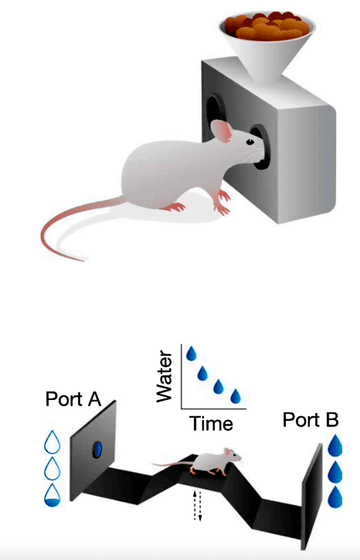Cancer not only debilitates the body, but also hijacks the brain and may debilitate the mind

As cancer progresses, not only do it cause physical pain and functional decline, but many patients lose interest in activities they once enjoyed and become lethargic. A paper published in April 2025 suggests that cancer may not just debilitate the body, but may also hijack certain brain circuits that control consciousness.
A neuroimmune circuit mediates cancer cachexia-associated apathy | Science
Cancer hijacks your brain and steals your motivation − new research in mice reveals how, offering potential avenues for treatment
https://theconversation.com/cancer-hijacks-your-brain-and-steals-your-motivation-new-research-in-mice-reveals-how-offering-potential-avenues-for-treatment-254043

Doctors have long believed that the lethargy that terminal cancer patients often experience in life's activities is an inevitable psychological response to physical decline. As cancer progresses, a nutritionally debilitating state called cachexia tends to complicate treatment, as patients struggle to cope with the demanding treatments that require effort and patience.
However, according to a paper published in Science by Adam Kepczys and his colleagues from the Department of Neurology at the University of Washington School of Medicine, cachexia may act on circuits from the brainstem to the basal ganglia that suppress dopamine signals, thereby driving inhibitory neurons.
By applying neuroscience tools to a mouse model of cancer cachexia, researchers have been able to determine how brain activity in mice is altered by the disease, identifying a small brain region called the area postrema that acts as a brain inflammation detector.
In the experiment, mice learned the first task of getting food by putting their noses into a box containing food, and the second task of getting water by repeatedly crossing a bridge with boxes on either side to get water. Below is an image of the task used in the paper. In both tasks, the number of activities required increases each time food or water is repeatedly obtained. For example, when drinking from a bridge to get water, the amount of water decreases while drinking, so it is necessary to cross the bridge to get water on the other side, but the amount of water decreases over time, so it is necessary to repeatedly cross the bridge more quickly.

As cancer cachexia increased (cancer progressed), the mice still sought food and water rewards, but only attempted tasks that were easily obtained and quickly abandoned tasks that required more effort to obtain more rewards, while their dopamine levels were observed to decline in real time.
As tumors grow in the body, they release cytokines, molecules that cause inflammation, into the blood. When the area postrema detects an increase in inflammatory molecules, it triggers neurotransmission across multiple brain regions, ultimately suppressing the release of dopamine in the nucleus accumbens, the brain's motivation center. Since dopamine is associated with the desire to put in effort to obtain rewards, the neural mechanism by which tumor growth leads to decreased motivation.
Importantly, the mouse study not only sheds light on the motivation-destroying effects of cancer cachexia, but also found a way to restore that motivation, says Kepex. According to the paper, mice could restore normal motivation by either turning off inflammation-sensing neurons in the area postrema or by directly stimulating the neurons to release dopamine, even though the cancer itself continued to progress.
In addition, when mice were administered a drug that inhibited cytokines, which are molecules that cause inflammation, the effect of the area postrema on the nucleus accumbens to suppress dopamine was also suppressed. Although these results are based on mouse models, they suggest that they may be applicable to human treatments.
'Our findings have far-reaching implications beyond cancer. The inflammatory molecules that cause loss of motivation in cancer are also involved in many other diseases. This brain circuitry may explain the debilitating lethargy experienced by millions of people suffering from a variety of chronic diseases. Although further work is needed to translate these findings into human therapies, they point to a promising therapeutic target,' said Kepex.
Related Posts:
in Science, Posted by log1e_dh







